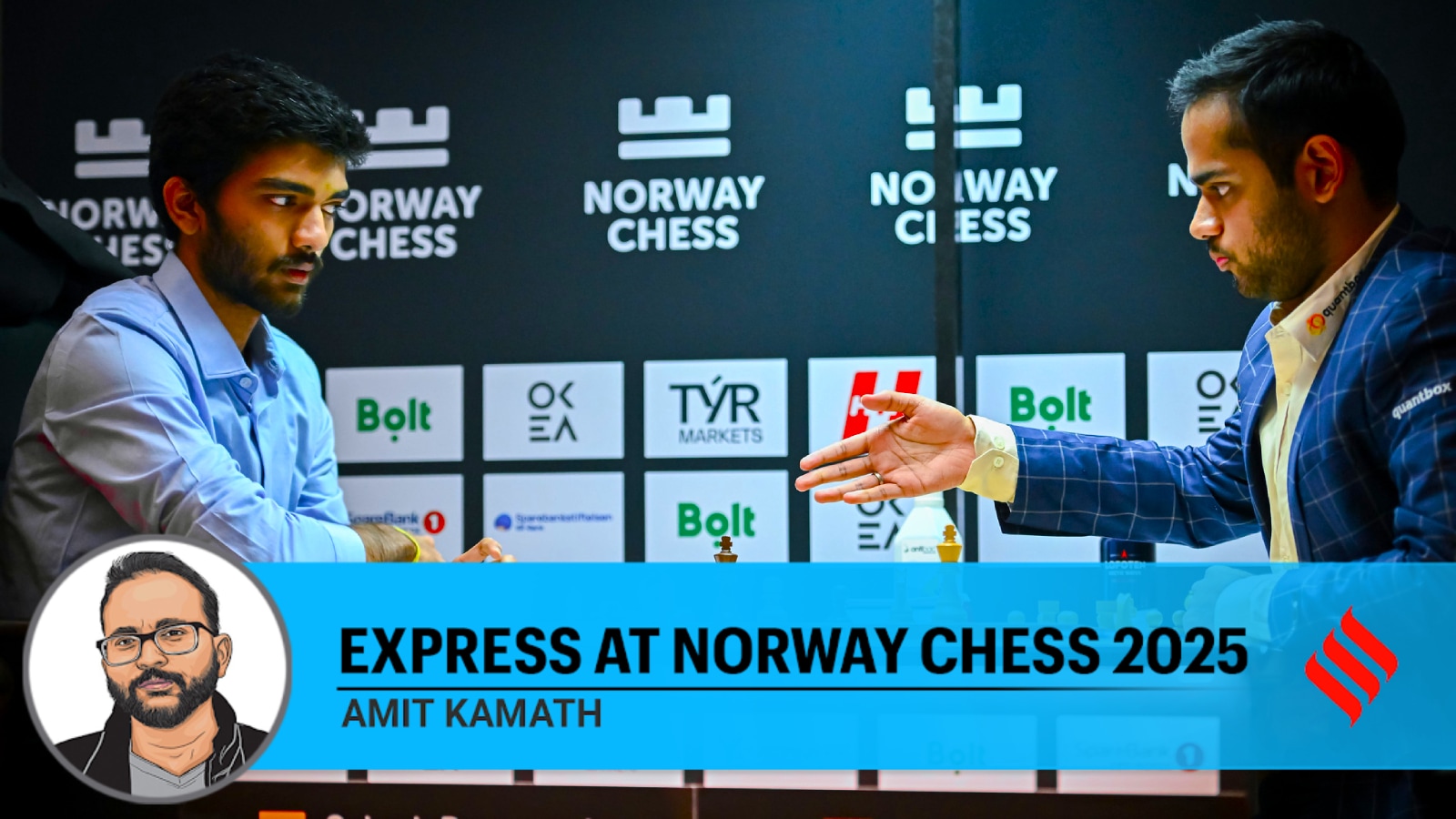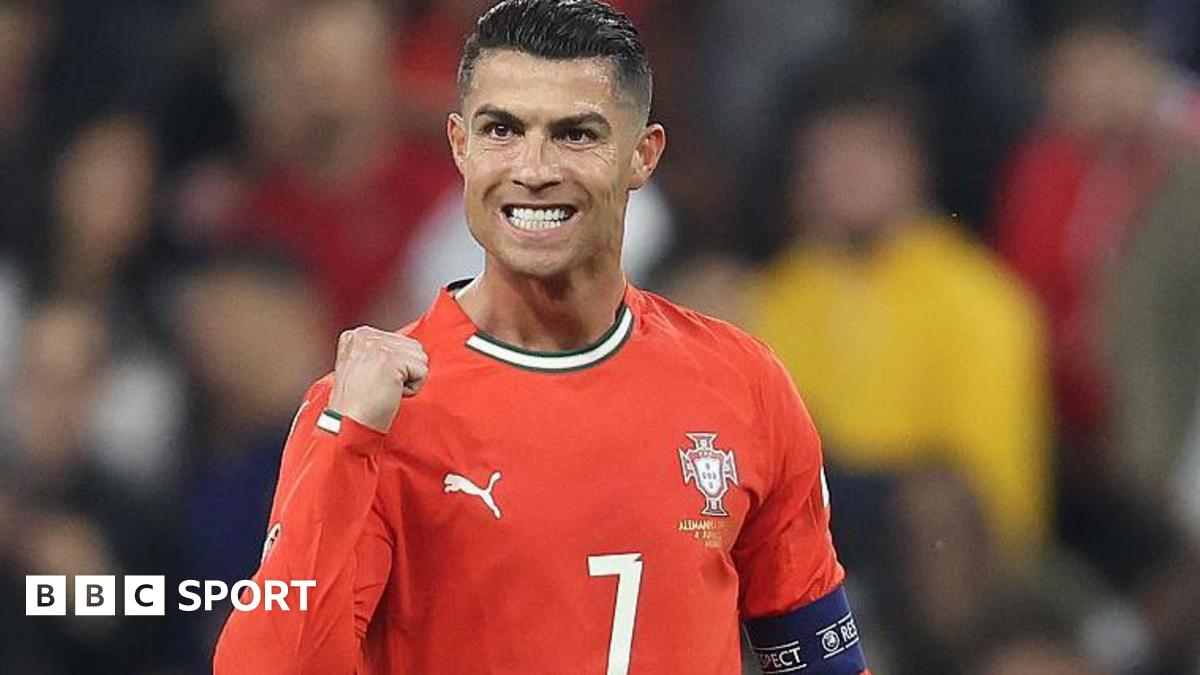How Gukesh beat Arjun Erigaisi

For the second straight game at Norway Chess, world champion Gukesh Dommaraju managed to squeeze water out of stone, grinding away from a disadvantageous position until a win appeared. On Sunday, it was world no 1 Magnus Carlsen who lost a game which he should have won against Gukesh. On Tuesday, it was Arjun Erigaisi, who also had a significant advantage on the board and on the clock at one point, but then saw Gukesh force a resignation in 92 moves. Both victories were the first time Gukesh had defeated them in classical chess (he had lost six times to Arjun before Monday). The two wins also helped Gukesh go from at the bottom of the six-player standings to second spot.“I was just losing at some point, was slowly getting outplayed. From the opening, nothing went my way,” Gukesh said. “But once I got to this position, I had to keep making moves that don’t lose on the spot. And then in the time scramble, things happen.”On Sunday and Monday, things happened, alright! But as Gukesh’s second Grzegorz Gajewski would explain to journalists from India covering the Norway Chess tournament in Stavanger after the game, Gukesh was making them happen. More on that later.Story continues below this adMagnus Carlsen: ‘Maybe I should totally stop playing classical chess’First, here’s what was happening on the board on Monday: Arjun had the upper hand as per the eval bar until the 24th move. Gukesh had barely 15 minutes on his clock at this stage. Arjun had 37. In the previous games where the world champion had lost, he had admitted that his time management had not been the best. At Norway Chess, players get 120 minutes on their clock and have no increments in the first 40 moves, rather than from the first move itself. Then they get just 10 seconds per move from move 41, which makes managing their clock a critical skill.By move 27, Gukesh was up a pawn on the board. By move 30, both players had just over seven minutes left on their clocks. This was also the phase where Gukesh mounted his comeback. After making Arjun’s king run around a few times using his rook, Gukesh gobbled up another pawn from Arjun on move 48. One move later, he had just a minute left on his clock. From here on, every move both players made, earned them just a 10-second buffer.There were a few more upheavals on the eval bar after move 60. But eventually Gukesh won.Story continues below this adGukesh has often been accused of being a player who cannot play well in the faster time controls because his calculative style needs time to flourish. But in the last two games, he was using his calculation skills to pressure his opponents.While plenty of focus has been paid on Carlsen’s blunder on the board that allowed Gukesh to start a fightback in the previous round, it must be pointed out that the only reason the game had stretched for so long was that Gukesh had ignored the voice at the back of his mind asking him to throw in the towel. The teenager had admitted that he was close to resigning against Carlsen, but had opted to soldier on instead.“I remember being that age myself and sometimes your energy, your fighting qualities and your optimism are bigger than the quality of your moves. For a long time, Gukesh was just blindly pushing,” Carlsen said.Monday saw him do plenty of pushing as well.How Gukesh beat Arjun Erigaisi“When you’re in such trouble (as in the game against Carlsen) and you keep fighting and you get rewarded for it, you have even more faith that it makes sense to keep fighting. So the very next day (versus Arjun), when you’re again in trouble, you definitely know what to do, you just keep fighting,” Gajewski told journalists from India at Stavanger after the win over Arjun.Story continues below this adGajewski then explained how Gukesh’s ability to calculate had worked to his advantage even in dire time scrambles.“It’s not like other players give up very quickly. But usually, when Gukash is in trouble, at some point the game is reaching a conversion stage (converting the advantage into victory). Conversion stage of the game requires calculation and precision. This is exactly where Gukesh stands in the way, because he demands the very highest level of accuracy and precision from you. And if you’re not up to it, you might mess up the position, even if you’re number one in the world,” Gajewski said. “Simply put, Gukesh has extraordinary calculation abilities, which combined with his fighting spirit, help him defend so many positions.”World champion Gukesh walks out of the playing hall after beating Arjun Erigaisi at the Norway Chess tournament on Monday. (PHOTO: Michal Walusza via Norway Chess) World champion Gukesh walks out of the playing hall after beating Arjun Erigaisi at the Norway Chess tournament on Monday. (PHOTO: Michal Walusza via Norway Chess)“He fights and fights and fights no matter how bad the positions are,” remarked chess legend Susan Polgar on X. “This was also the strength of Carlsen for years. Mark of champions.”When asked about the comparison between Carlsen and Gukesh forcing their opponents to earn a win, Gajewski said: “As I recall, young Magnus would refuse to agree for a draw and would just keep playing those little-bit better positions that everybody thought would be easily drawn. And in the end, they weren’t… I don’t ever remember him having so many lost positions that he had to keep fighting in. But he was definitely a fighter.”Story continues below this adGajewski also pointed out that Gukesh had shown remarkable resilience in turning around a tournament that had started with defeats in his first two games, against Carlsen and Arjun.“He actually started the tournament with two losses and it did not discourage him from fighting. He didn’t lose his spirit. That’s a very big success, regardless of how the tournament ends. This is a very nice thing to achieve here because from now on at every next tournament, if he starts badly, he will know that it doesn’t necessarily have to end as a bad tournament for him.”For a boy who considers Novak Djokovic as one of his sporting idols, Gukesh is now starting to demonstrate some of the qualities that the Serbian tennis ace is the patron saint of. Like Djokovic tends to find an appetite for a fight when two sets down — the former world no 1 has at least eight comeback wins in Grand Slams after being two sets down — Gukesh has now earned victories from nowhere.“That’s a nice comparison,” Gukesh said after beating Arjun, “but maybe I will just try and get some good positions (from the start) from now on.”Story continues below this ad(The writer is in Stavanger at the invitation of Norway Chess. Norway Chess is live streamed on Sony LIV.)








